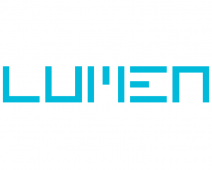Pairing Technology with People: Man & Machine’s Future Co-Existence in Media
by Lindsay Rowntree on 21st Feb 2017 in News

The ad tech industry has a lot to answer for. The digital boom forced the focus in advertising to shift to technology rather than the expertise of people. As a result, writes Chris Dobson (pictured below), CEO, The Exchange Lab, many companies have lost sight of the fact that technology is just a facilitator for digital advertising. The fact is that most advertisers don’t care about the ins and outs of the technology, just that it works, is safe, and that they won’t be wasting money using it.
At the same time, we’ve seen what the cost of non-transparent black box technologies can have. The much talked about speech by Marc Pritchard from P&G called out the “murky technology” practices in programmatic, resulting in many others following suit and reviewing their practices
Programmatic has come a long way since it began ten years ago – from direct response and remnant inventory, to brand campaigns and most premium online publishers offering programmatic services. However, I believe that to achieve both transparency and excellence in programmatic, we need to focus on what has been neglected over the years – people.
Technology, transparency, talent
While technology has revolutionised media beyond recognition over the past 10 years, many believe it is a save-all, leaving the algorithms alone to do the work of connecting brands with audiences. Put plainly, technology is only as good as its operator. Not only do they know how to get the best out of it, they are an extra layer of brand safety when it comes to checking for fraud and patterns of behaviour that machines cannot pick up on.
In light of repeated calls for transparency, it’s easy to understand why some advertisers would like to pursue bringing programmatic in-house again. While there are various challenges associated with brands managing programmatic directly, such as technology standardisation issues and keeping up to date with the best technologies and practices, perhaps one of the most pivotal of all is finding the right talent. With such a mammoth operation, finding experts who are well versed in multiple technologies may not be the easiest task.
In our experience, clients who initially assumed ‘in-house’ models quickly realised that they had the tendency to isolate talent that, as a result, were in danger of becoming 'out of date'. Only through collective experience and training across multiple technologies can expertise be kept current. Often, bringing programmatic in-house has been confused with the need for safeguarding the business’ IP, such as first-party data. Programmatic today is sophisticated enough so that a client can separate the imperatives into relevant criteria – brand safety, viewability, sanctity of data, transparency and last, but not least, service, which has been resurgent in the past year.

Chris Dobson, CEO, The Exchange Lab
Media agencies, too, have had to change their skill sets dramatically over the past few years – from manual media trading to technology-driven. Agencies have had to encourage and recruit for huge changes in skill sets from their employees. As a result of chasing the digital consumer revolution, the industry has pushed some skill sets too far towards technology rather than having a balance of overall media consultation, strategy, and understanding of how people interact with all media. We need to get back to the basics of advertising and find the middle ground again.
New working world; new face of the workforce
People are still the most important commodity in our industry; but we need to accept that the workforce of today has dramatically changed and we have to move with the times. Technology has been changing working practices for the past 25 years. We’ve seen first-hand in our own offices that one media campaign running across 19 countries can be operated by a small team from one country. Years ago, you would have needed people in each country to place the media.
Automation has, and will continue to, ingrain itself into almost all sectors, reducing the need for people. For example, the move to more autonomous cars will change the way people commute – freeing their time to work effectively enroute to and from the office. As a result of cars that drive themselves, the car insurance industry will eventually fall apart as there won’t be the need for the high insurance premiums there once were as accident rates dramatically reduce.
Younger employees are coming to terms with the fact that they are working for themselves now – the days of a job for life have gone, but it isn’t seen as advantageous anyway. A recent study into millennials’ attitudes shows that younger generations aren’t motivated by the same factors as previous generations, such as a job for life (they look now for a good work/life balance above financial success) and they need to remain flexible.
In advertising, the skill set required today is wholly different from what it was before; the old world of trading media through negotiation from monopoly to monopoly is changing. These days, the monopolies are much more powerful – Facebook and Google now account for about 95-99% of the digital ad industry’s growth – up from 58% in 2015. The level playing field has disappeared. Businesses are assessing how to find their niche, as well as retain quality talent.
Richness of experience comes from talent and the environments we build in to help them learn and grow. Platforms vary and change so rapidly that stunting a digital talent too early by bringing them in-house could be detrimental to both the employee and the company. Pharma giant GlaxoSmithKline recognise the fact that innovation and a sustainable research and development pipeline cannot be sustained from internal efforts alone. The same principle applies to any fast-moving industry – none more so than digital. At The Exchange Lab, our employees need to know each platform intimately and become the experts for our clients, which is not always an easy feat. For companies to stay ahead, it’s often best to keep expertise fresh, flexible, and outsourced, while keeping the Corporate eye on protected IP and what ‘media’, as a concept, represents in the 21st century.







Follow ExchangeWire